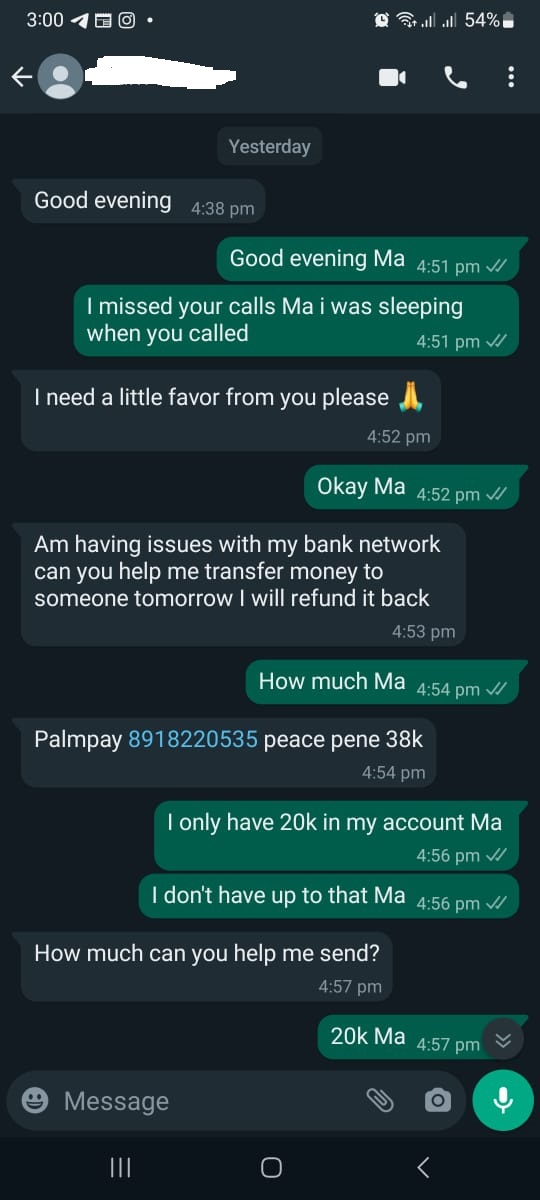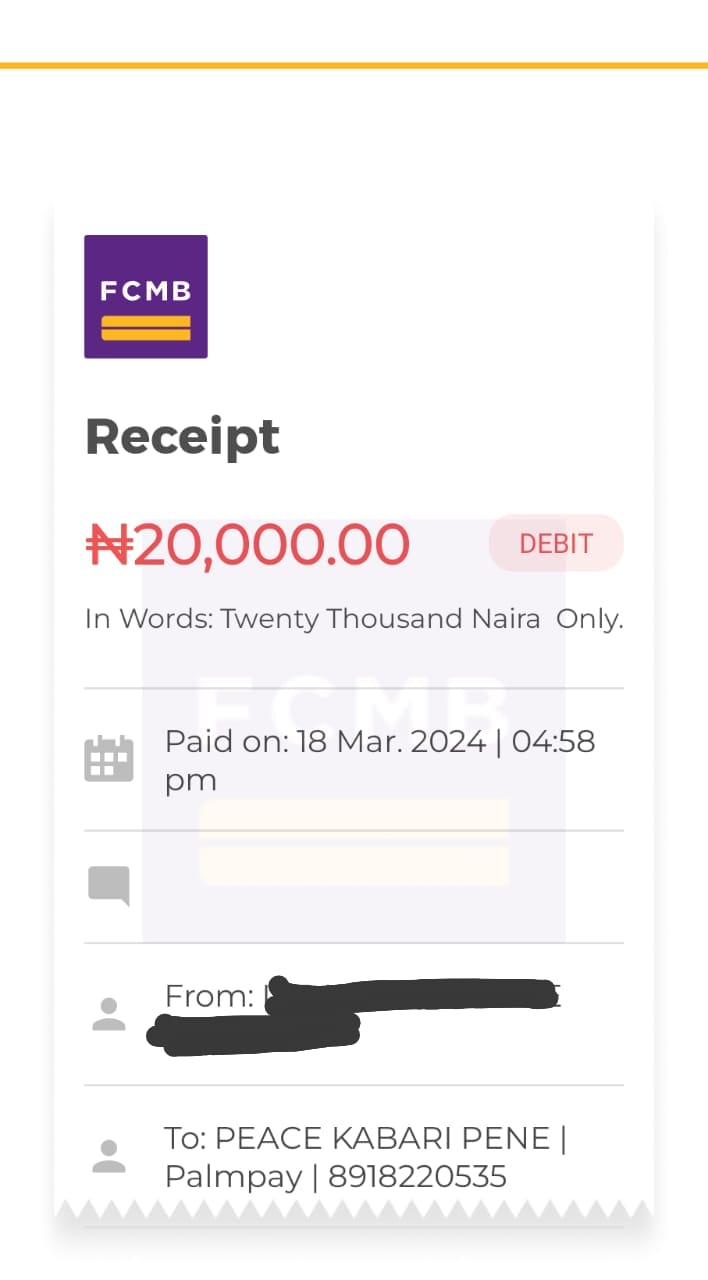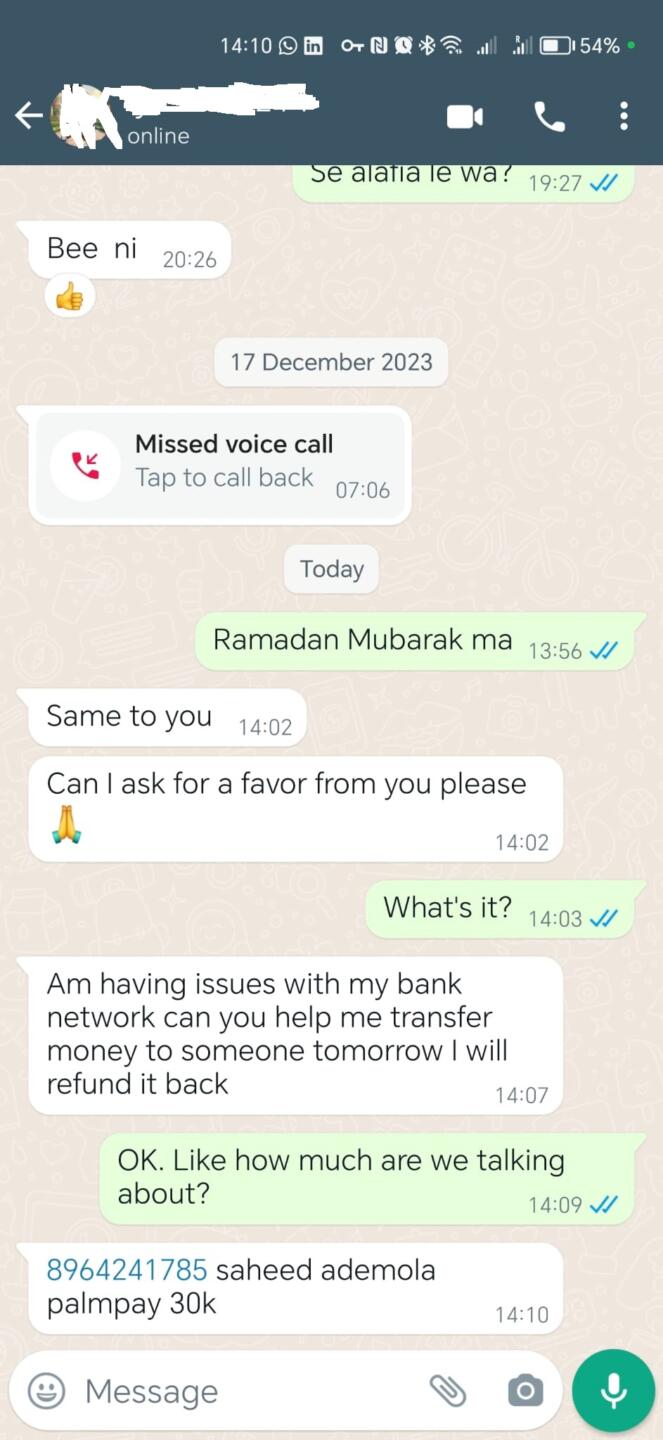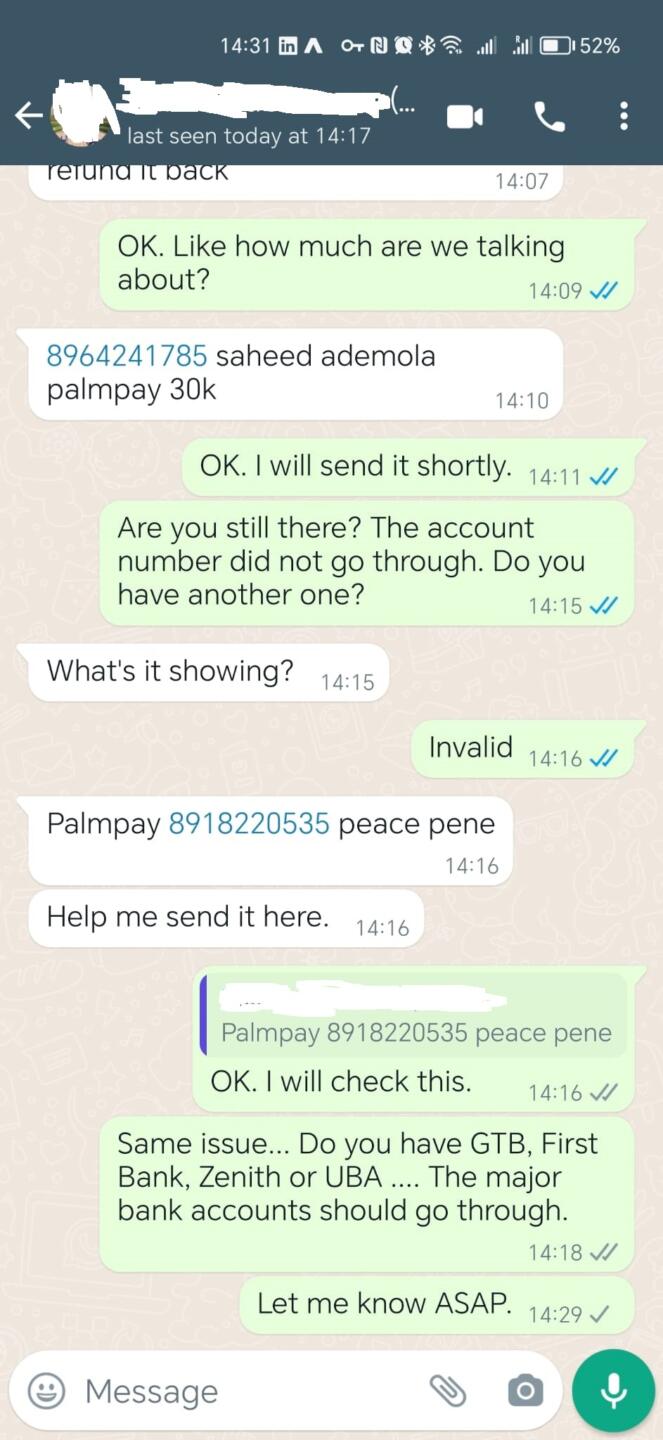We urge WhatsApp users to remain vigilant following reports of scammers infiltrating accounts and soliciting money from the contacts of their victims.
This concerning trend highlights the importance of exercising caution and implementing security measures to safeguard personal information and finances.
The modus operandi of these scammers typically involves gaining unauthorized access to a user’s WhatsApp account, either through phishing attacks, malware, or other deceptive means. Once inside, they exploit the trust established with the victim’s contacts by sending messages requesting financial assistance. These messages often portray a fabricated emergency or crisis, compelling recipients to act swiftly without verifying the authenticity of the request.
The level at which people are getting scammed in Nigeria and beyond through WhatsApp these days is indeed alarming. Just yesterday, someone reported her WhatsApp account was hacked and the hacker contacted her contacts to solicit financial help.
How it all started:
A woman received a WhatsApp call from a number (+1 209 729 4556) displaying a familiar profile picture. The caller claimed to be from her children’s school WhatsApp group, inviting her to a virtual meeting and requesting she provide a verification code sent to her phone. Believing it was for the meeting, she shared the code, unknowingly granting the caller access to her WhatsApp account. The scammer then locked her out and sent messages to her contacts, attempting to solicit money.
Unfortunately, one person got scammed of N20,000 which she unknowingly sent to the scammer before she could reach out to her person. The woman attempted to reach out to her and all her contacts, however, the victim was asleep and did not verify the scammer’s request. As seen in the screenshot below, the scammer, after hijacking the victim’s WhatsApp number, then contacted the person below and others.
The unsuspecting victim transferred N20,000 from her FCMB bank account to the scammer’s PalmPay account 8918220535 with the account name Peace Kabari Pene.


As a follow-up to the successful scam, we acted to get more information from the scammer before they could not reach out again. The scammers are using @PalmPay accounts for these acts.
In addition to PalmPay account 8918220535 with the account name Peace Kabari Pene, The scammer also uses PalmPay account 8964241785 with the account name Saheed Adelani Ademola. The scammer ran away when we attempted to ask him to send one of the major bank (GTB, First Bank, UBA) accounts.


We therefore call on the relevant authorities such as the Central Bank of Nigeria (CBN), Economic and Financial Crimes Commission (EFCC), Nigeria Police etc to step in to help the unsuspecting Nigerians from the nefarious acts.
Our Advice
To mitigate the risk of falling victim to such scams, WhatsApp users are advised to adopt the following preventive measures:
Enable Two-Step Verification: This adds an extra layer of security to your WhatsApp account, requiring a PIN code in addition to your phone number when logging in. To activate this feature, go to “Settings” > “Account” > “Two-step verification.”
Avoid Clicking on Suspicious Links: Exercise caution when clicking on links received via WhatsApp, especially if they are from unknown senders or seem suspicious. These links could lead to phishing sites designed to steal your login credentials.
Verify Requests for Money: If you receive a message requesting financial assistance from a contact, take the time to verify the authenticity of the request through a separate communication channel, such as a phone call or face-to-face conversation.
Educate Yourself and Others: Stay informed about common scams and educate friends and family members about the tactics used by fraudsters on messaging platforms like WhatsApp. Awareness is key to preventing unsuspecting individuals from falling prey to such schemes.
Report Suspicious Activity: If you suspect that your WhatsApp account has been compromised or encounter suspicious messages, report them to WhatsApp immediately and notify your contacts to ignore any unusual requests coming from your account.
By remaining vigilant and implementing these security measures above, you can protect yourself and your contacts from falling victim to account hijacking and fraudulent schemes. Remember, it’s always better to err on the side of caution when it comes to safeguarding personal information and finances in the digital age.
If you have experienced a similar scam, please share your experience so that others can learn from it and together we can prevent the bandwagon effects.
Support InfoStride News' Credible Journalism: Only credible journalism can guarantee a fair, accountable and transparent society, including democracy and government. It involves a lot of efforts and money. We need your support. Click here to Donate
